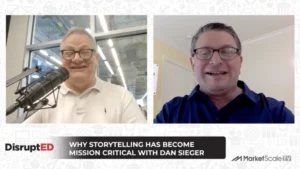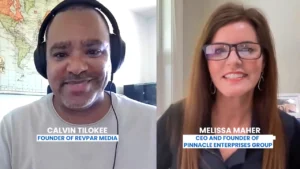Did Facebook’s Outage Validate the Need for a Decentralized Web 3.0?
Do we need a decentralized Web 3.0? We were witness this month to the longest outage in Facebook’s history since 2008, lasting a full six hours. That may not sound like much time, but when the impact is billions of users losing access to Facebook, Instagram, WhatsApp and Oculus, along with businesses losing out on critical ad revenue, a six hour shortage can feel like a lifetime.
That six hours reminded businesses and users alike that the most popular day-to-day experiences on the internet are in the hands of a few major companies. And even if interests are aligned to keep these platforms actively running, that centralization means there’s little public oversight for how to prevent more outages, or how to respond at all, besides the pressures of avoiding lost profit. Is this mass Facebook outage a validator for a major change to web infrastructure, like a decentralized Web 3.0, a user-owned social media, or something else?
We turned to two thought leaders in the emerging Web 3.0 world for insights on the domino effect Facebook’s outage is having on a decentralized internet ecosystem:
- Victor Michaelson, Advisor at DeNet, a decentralized storage based ecosystem leveraging the sharing economy, explains how events like these pull users and companies to decentralized networks.
- Doug Petkanics, Founder & CEO of Livepeer, a decentralized video streaming network built on the Ethereum blockchain, weighs in on the business model components of a decentralized web.
Abridged Thoughts:
“Any major failure will drive the community toward decentralization towards web 3.0. It becomes more and more obvious that the only way to avoid such situation is moving your business to decentralized systems based on blockchain to bring down Facebook services. All you have to do is to bring their servers to bring down decentralized service. You have to do it with dozens of thousands of personal devices distributed all over the world. As long as internet is up and running, decentralized network will be up and running with all the services. Good news decentralized NFT based marketplaces where physical objects are for sale although they’re just developing, there are few quite a few of them.” – Victor Michaelson
” When any big tech platform goes down via Facebook, it could happen last week or Google services like Gmail, docs or AWS with powers half the internet. Certainly, it points to the risks of relying on over centralization of infrastructure in this traditional web to where at least few companies run all the infrastructure that so many businesses rely upon. And with any single point of failure, that reliance can come to a head and lead to a halt in productivity, economic output and more. Web 3.0 infrastructure offer some improvements on this. You have decentralized infrastructure is no single points of failure, cost efficient redundancies, replication of data and services. And so the promise is that that can be impactful.” -Doug Petkanics








